Overview

Water is integral to every aspect of life. Hegemonic actors, capitalist systems, and industrialized societies see water as a commodity and prioritize economic benefits in detriment of local communities. Therefore, lack of access, distribution, and right to water creates injustices at multiple levels.
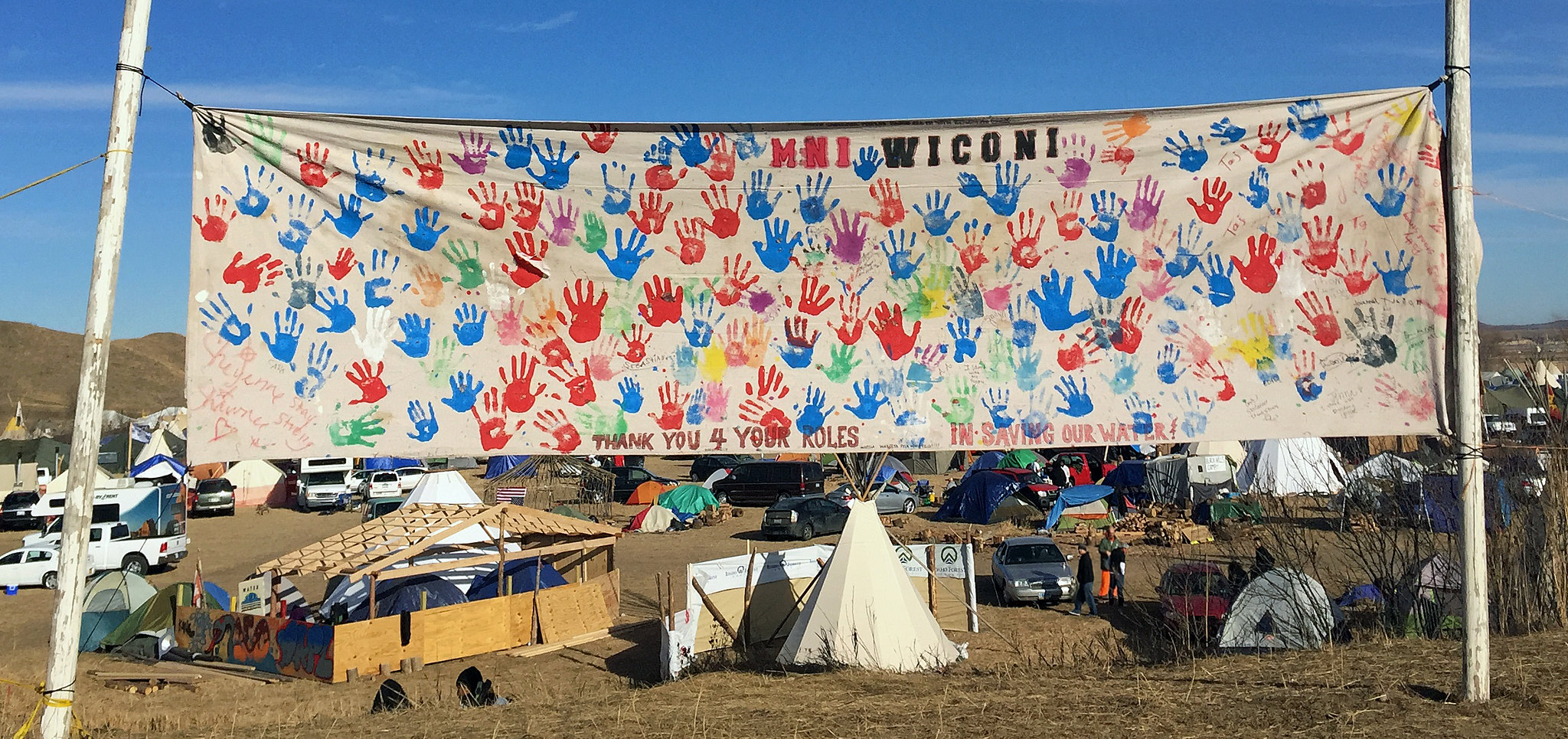
Water issues range from water pollution, water degradation and water depletion to water grabbing for unsustainable activities like industrial agriculture, disproportionate consumption of goods, mining activities, and energy production ranging from fossil fuels to fracking.
At the intersection of water issues is injustice, and therefore prioritizing the need to dismantle projects by transnational institutions and corporations is of utmost importance. The struggle to protect water resources in local communities is accelerated by the development agenda that reinforces economic growth over community’s needs and misuse water instead of sustaining life.
Privatization of water resources, water depletion due to overextraction, and pollution from industrial uses to greenwashing resolutions like dam-building activities and sustainable operations aggravates the struggle for water justice in the Global South.
There are multiple alternatives like water sovereignty, remunicipalisation, communal water rights, low-cost community-owned infrastructure and customary water laws which can be seen as pathways to challenge the structures of power in order to create a more just and sustainable world.
**Disclaimer: It is critical to recognize that the solutions for water justice should not be limited and/or dependent on state, local or federal regulations. We acknowledge that the solutions presented in this platform do not include common forms of resolutions like water enforcement mechanisms for water protection and water regulations.
Way Forward
Way Forward 1:
Water Justice and Water Sovereignty
It is critical to premise water justice concerns through the lens of indigeneity and recognize the colonial state water bureaucracy practices. Water justice can be understood as the interactive societal and academic endeavor to critically explore water knowledge production, allocation and governance and to combine struggles against water-based forms of material dispossession, cultural discrimination, political exclusion and ecological destruction, as rooted in particular context.
Water injustice goes beyond its physical or chemical forms. Therefore, there is a need to broaden our understanding about the harmful relationships between water and other sectors such as energy, manufacturing and agriculture which perpetuate water-based injustices, inequalities, and discrimination. Water justice scholars should seek innovative approaches to the challenges and not merely focus on the technical aspects of water issues.
The powerful state water bureaucracies have imposed colonial large-scale construction of dams, reservoirs and hydropower plants that are grounded on ideological western domination of nature resulting in destruction of the environment, displacing millions worldwide and perpetuating societal concerns.
While there is a stronger momentum for water sovereignty, we should also be able to recognize that some water resources are ‘allocated' by the state. Even if sovereignty is embodied in local communities, vulnerable groups, and corporations, it is merely a shift of powers amongst States, International Organizations and Institutions, and private actors, including local communities or vulnerable groups.
Climate Change
Frontline communities face immediate risk due to the impacts of climate change. Along with loss of land, the rise in sea levels impacts coastal communities’s drinking water resources which are at risk due to desalination. In the mountain regions, there is an increased risk from glacial lake outbursts floods (GOLFs) contributed by glacier melts due to rise in global temperatures. Likewise, downstream communities face risk from dam hazards, flooding and loss of arable land.
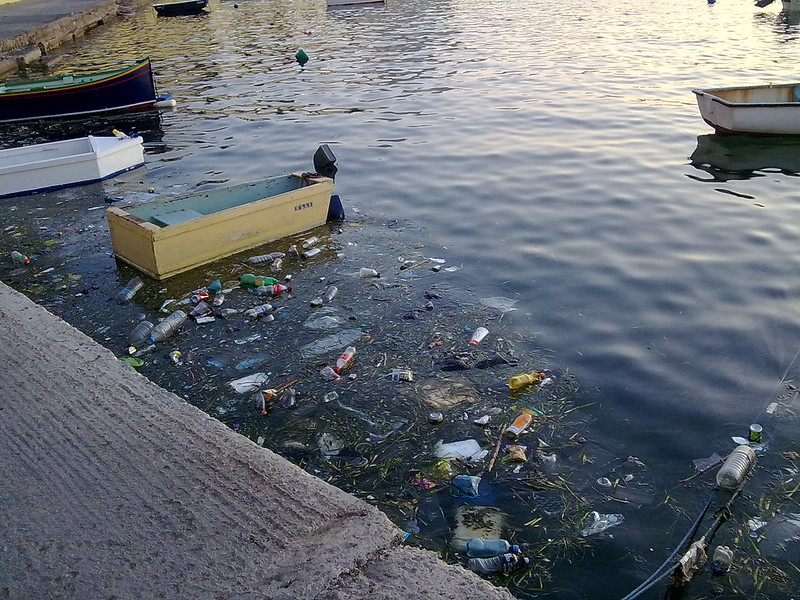
Organizations leading the way in Water Justice and Water Sovereignity
Transnational Institute (TNI)
The Transnational Institute (TNI) is an international research and advocacy institute committed to building a just, democratic and sustainable world.- Water Justice Project: The Water Justice project, run jointly by TNI and Corporate European Observatory, is engaged in the work of building viable alternatives to water privatisation, focusing on how to reform public water systems in order to make the human right to water a reality for everyone.
FAME (Alternative World Water Forum)
The objective of FAME is to create a concrete alternative to the sixth World Water Forum (WWF) which is organized by the World Water Council. This Council is a mouthpiece for transnational companies and the World Bank and they falsely claim to head the global governance of water.FAME will pursue and amplify the water movement by:
- creating and promoting an alternative vision of water management which is based on ecological and democratic values
- continuing research to find solutions to the worldwide water crisis
- making the water movement structure sustainable.
Movement Of People Affected By Dams (MAB)
MAB advocates for the human right to water and land, particularly for people displaced by dams and other mega-projects. The threat from increasing numbers of mega-dams has risen dramatically as the climate and energy crises have fueled the growth of so-called “clean and green” energy sources like hydro-powerWomen and Rivers Network
The Women and Rivers Network is committed to protecting free-flowing rivers and the lands, forests and territories they sustain, to ensuring women’s leadership in decision-making at all levels over freshwater resources, and to strengthening alliances and growing our movement – for the future of ourselves as women, our families and communities, our rivers and our planet.The event brings together close to women from more than 30 countries to celebrate the fundamental role women play in defending and stewarding freshwater resources, as well as to spur collective action to challenge the deep-rooted, gender inequities that women face in safeguarding rivers and river ecosystems
Focus on the Global South
Focus on the Global South is an activist think tank in Asia providing analysis and building alternatives for just social, economic and political change. They work on the following thematic areas: Political Economy & Development, Power and Democracy and People’s Alternatives.Water Protector Legal Collective
Water Protector Legal Collective provides legal support, advocacy, and knowledge sharing for Indigenous centered and guided environmental and climate justice movements.South Asia Network on Dams, Rivers and People (SANDRP)
SANDRP is an informal network working on issues related to rivers, communities and large scale water infrastructure like dams: their environmental and social impacts, their performance and issues related to governance of rivers and dams.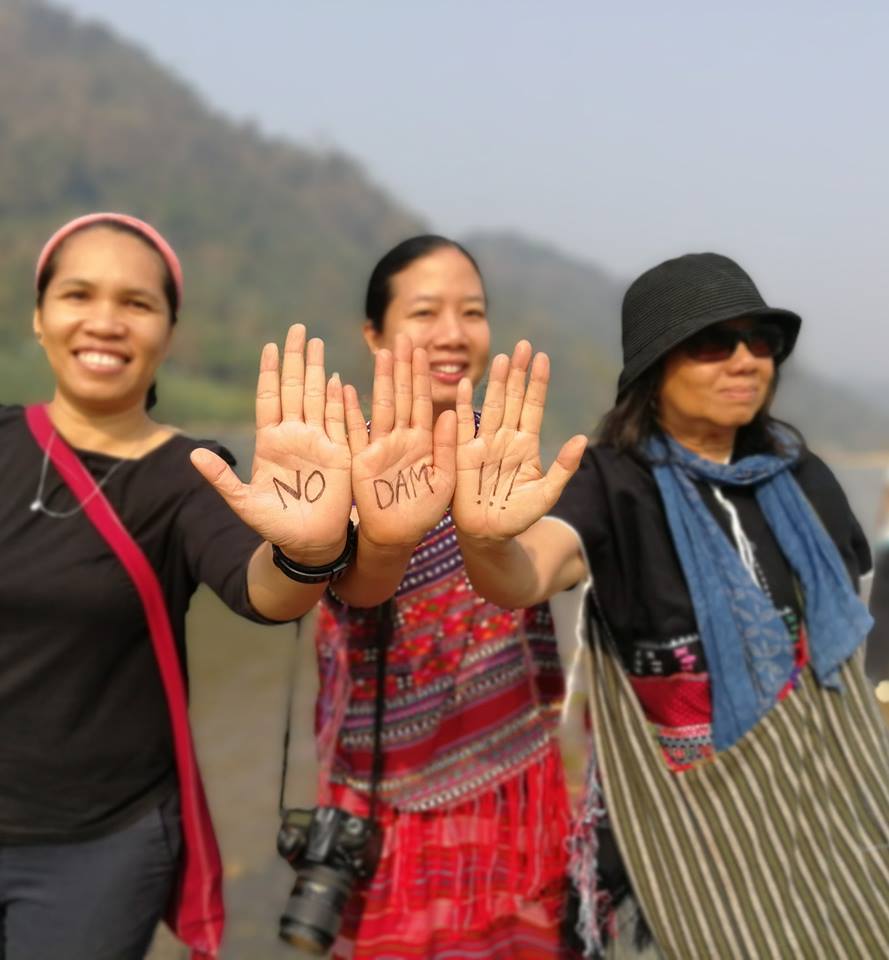
"March 14 2019 - International Rivers and partners at the Salween River 3" by International Rivers is licensed under CC BY-NC-SA 2.0
The Acequia Institute
The Acequia Institute (TAI) is a non-profit organization dedicated to research, education, and program extension to support the flourishing of the acequias, or communal irrigation canals, farming communities of the Upper Rio Grande watershed in New Mexico and Colorado.Water Alternatives - Journal
Water Alternatives is an interdisciplinary journal addressing the full range of issues that water raises in contemporary societies. Its ambition is to provide space for alternative and critical thinking on such issues.
"March 14 2019 - International Rivers and partners at the Salween River 2" by International Rivers is licensed under CC BY-NC-SA 2.0
International Rivers
International Rivers protects rivers and defends the rights of communities that depend on them. They work to stop destructive dams and promote water and energy solutions for a just and sustainable world.- Civil Society Guide to Healthy Rivers and Climate Resilience
- Beyond Dams: Options & Alternatives
- Factsheets
- Reports & Publications
- Dam Standards: A Rights based Approach
- Dams, Rivers and People Reports
Global Alliance for the Rights of Nature (GARN)
GARN is a network of organizations and individuals committed to the universal adoption and implementation of legal systems that recognize, respect and enforce “Rights of Nature”.GAIA Foundation
GAIA accompanies partners, communities and movements in Africa, South America, Asia and Europe by supporting communities and social movements on the front line of struggles to protect land, water and life, and to build regenerative alternatives to mining and extractivism.- Knowledge Is Power: Community Tools For Protecting Land, Water And Life
- In Defence of Life Video
- Beyond Extractivism Report
- Water Is Life: African Earth Jurisprudence Practitioners Share Their Stories In Webinar
- ‘Water Is Life’ Toolkit- New Online Platform To Support Water Defenders Resisting Mining

Narmada Bachao Andolan (Save the Narmada Movement)
Narmada Bachao Andolan (NBA) is an Indian social movement spearheaded by native tribes (adivasis), farmers, environmentalists and human rights activists against a number of large dam projects across river Narmada, which flows through the states of Gujarat, Madhya Pradesh and Maharashtra.- Global Nonviolent Action Database
- Sardar Sarovar Dam: Case Study
- DAM / AGE : a documentary about ARUNDHATI ROY & the Narmada Dam Project
- The Sardar Sarovar Dam Project: Selected Documents
- The River and The Rage: Dispossession and Resistance in the Narmada Valley, India
- Silenced Rivers: The Ecology and Politics of Large Dams
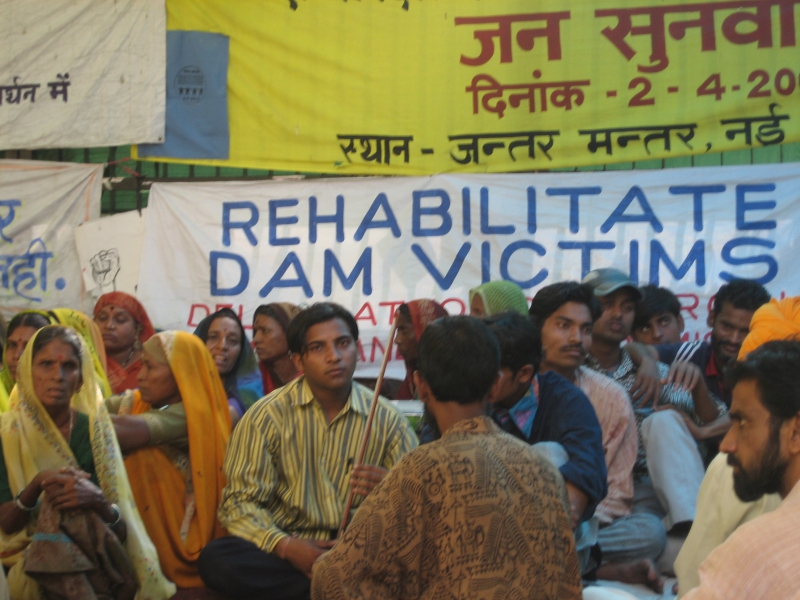 "The Narmada Bachao Andolan fights for rehabilitation for Dam Victims in Delhi, India" by International Rivers is licensed under CC BY-NC-SA 2.0
"The Narmada Bachao Andolan fights for rehabilitation for Dam Victims in Delhi, India" by International Rivers is licensed under CC BY-NC-SA 2.0European Rivers Network
Through a myriad of activities, including information campaigns and educational programmes, the network is involved in the protection of rivers and their ecosystems.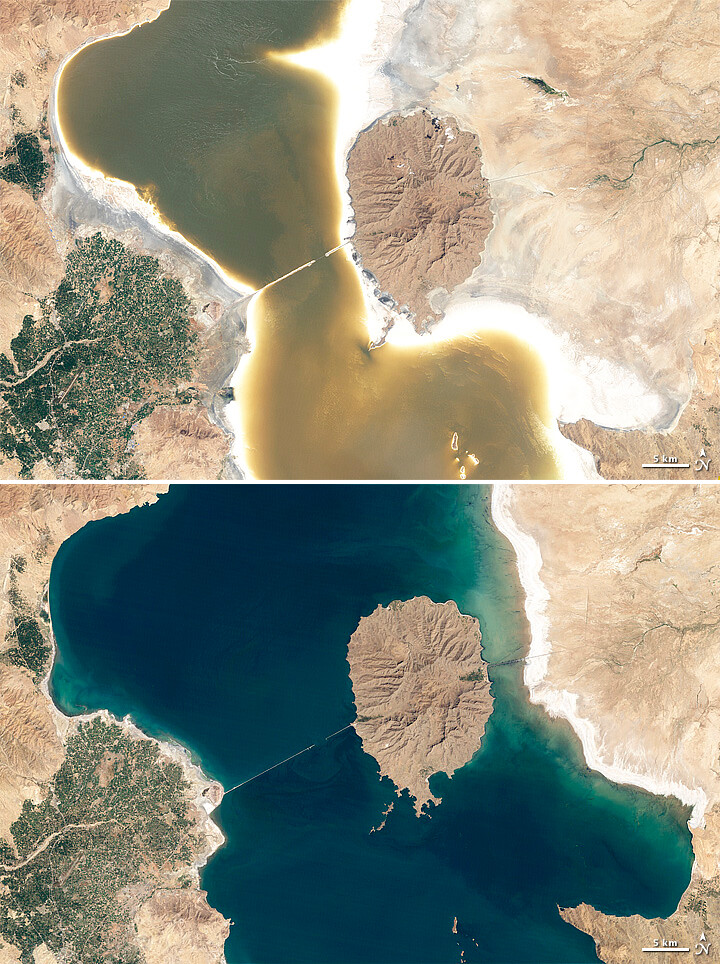
Additional Readings & Resources on Water Justice and Water Sovereignty:
Books, Articles, and Reports:
- The Multiple Challenges and Layers of Water Justice Struggles
- Water justice: key concepts, debates and research agendas
- The Shifting Geopolitics of Water in the Anthropocene
- Dams in the Amazon: Belo Monte and Brazil's Hydroelectric Development of the Xingu River Basin
- Environmental justice movements in globalising networks: a critical discussion on social resistance against large dams
- Contesting Hydropower Dams in the Eastern Himalaya: The Cultural Politics of Identity, Territory and Self-Governance Institutions in Sikkim, India
- Hydropower development and the meaning of place. Multi-ethnic hydropower struggles in Sikkim, India
- Water, Power and Identity: The Cultural Politics of Water in the Andes
- Center for International Environmental Law (CIEL)
- Heinrich Boll, Stopping Global Plastic Pollution
- The “Commons” Versus the “Commodity”: Alter-Globalization, Anti-Privatization and the Human Right to Water in the Global South
- Environmental Injustice in the Onondaga Lake Waterscape
- Water Sovereignty in the Age of Global Capitalism
- The Citizen’s Proposed National Water Law: Water democratization, sustainability and sovereignty in Mexico
- Local Control and Management of Our Water Commons
- Water Grabbing and Water Rights: Indigenous ‘Sovereignty’ v. State Sovereignty?
- The Moral Economy of Water: Equity and Antiquity in the Andean Commons
- Strategies of Successful Anti-Dam Movements: Evidence from Myanmar and Thailand
- Beyond Subalternity: Land, Community, and the State in Contemporary Jharkhand
- Indigenous water rights in law and regulation
- Rooted water collectives: Towards an analytical framework
- Equitable distribution of water through community participation in Assam, India
- Our right to water: Assessing progress five years after the United Nations recognition of the human rights to water and sanitation
- Payment for Ecosystem Services and the Water-Energy-Food Nexus: Securing Resource Flows for the Affluent?
Toolkits and Maps
Campaigns and Petitions
- Water and Extractivism: from North to South
- Forest-Land-Rivers and Tribal Identity (Himachal Pradesh, India)
- Against Dam-building in Teesta River,India and Release of Environmental Activists
- Against Integrated Kashang -Stage II & III Hydro Electric Project, India
Way Forward 2:
Democratization and Remunicipalisation of Water
The dominant water governance frameworks reproduce water colonialism which normalises settler occupation of land, the dispossession of Indigenous peoples of water, and legitimises settler exploitation of water. Likewise, scientific expertise of hydrology is valued over knowledge produced over centuries through Indigenous peoples’ water rights, responsibilities, and governance systems. Privatization of water for profit maximization, control of water resources through megadam hydraulic projects, and reinforcing concepts like watershed management, water quality control and sense of scarcity perpetuate water commodification.
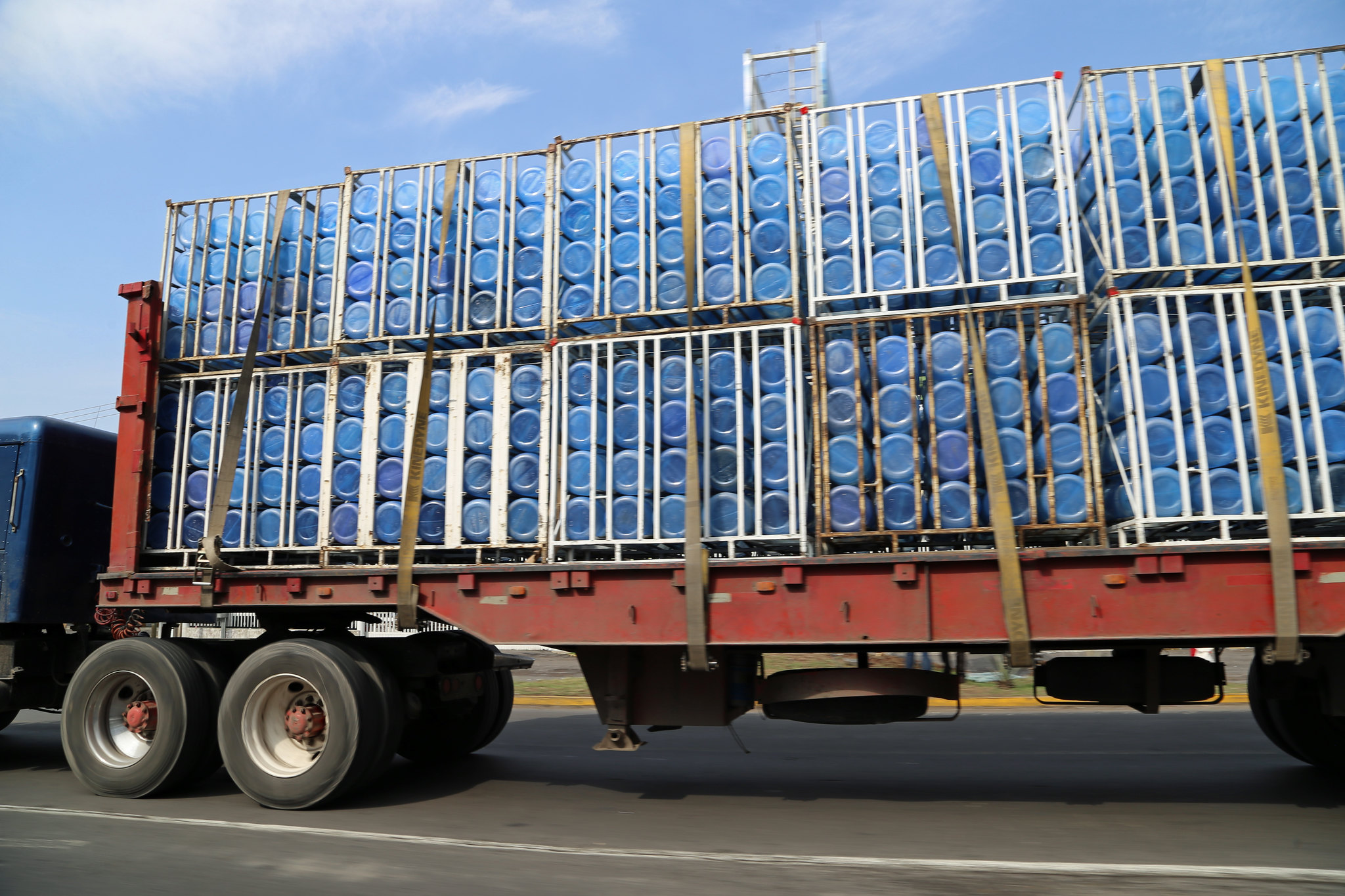
However in the last few decades, there have been local mobilizations against privatization efforts, mostly in the global north. Remunicipalisation is a local response by citizens and local authorities to systematically failing water privatisations and public private partnerships (PPPs). Multiple layers of water issues like pollution and depletion of watersheds have threatened Indigenous peoples’ rights to control water for the public good by other legal imperatives for water that do not respect its sustainable use or indigenous cultural autonomy and traditional systems.
Therefore, in order to resist control by corporations, Alternative World Water Forum (FAMA) successfully made its own space of diversity, welcoming the indigenous movements, quilombolas, fishermen, traditional communities, rural organisations, and socio-environmental movements from all over the world.
Unlike contemporary systems that solely frame water as a commodity, the indigenous cultural autonomy and traditional systems of commons-based management systems includes the right to democratic control over the management of water resources while presenting that the idea of water rights goes well beyond defined terms of access and use.

Organizations leading the way in Democratization and Remunicipalisation of Water:
Remunicipalisation - Transnational Institute (TNI)
There are many motivations behind (re)municipalisation initiatives: a goal to end private sector abuse or labour violations; a desire to regain control over the local economy and resources; a wish to provide people with affordable services; or an intention to implement ambitious climate strategies- [Book] Remunicipalisation: Putting Water Back into Public Hands
- [Interview transcript] Remunicipalisation
- [Website] Water Remunicipalisation Tracker
- [Book] Our Public Water Future
- [Review] Public-Public Partnership
- [Book] Reclaiming Public Water: Achievements, Struggles and Visions from Around the World
- [Report] Here to stay: Water remunicipalisation as a global trend
- [Report] Reclaiming Public Services: How cities and citizens are turning back privatisation
- [Report] The Tragedy of The Private, The Potential of The Public
WaterJustice.org: Resource Center for Alternatives to Privatization
Waterjustice.org is an open space to connect people from around the world dedicated to effective, democratic and equitable water solutions, including community activists, NGO campaigners, academic researchers, trade unionists and water utility managers. The success of the website will depend primarily on the active participation of these diverse groups.Hydropower Reform Coalition
Hydropower Reform Coalition is a diverse consortium of more than 160 national, regional, and local organizations with a combined membership of more than one million people.Amrta Institute for Water Literacy (Indonesia)
Amrta Institute for Water Literacy’s mission is to increase public awareness in water management, wise use, and sustainable water protection; find and implement efforts to overcome water scarcity for ecosystem sustainability and public welfare through water conservation; and fight for the public rights to get water with fair access.Public Service International
Public Services International is part of the original movement of Internationals: united groups of socialists, trade unionists and workers created to link the struggles of the working class around the world.- [Fact sheets] It’s Time to End Water Privatization
- [Article] PSI workshop in Indonesia on strengthening women and youth leadership
La Red VIDA (Inter-American Network for the Defense of the Right to Water)
La Red VIDA is a campaign in defense of water as a public good and a fundamental right. The network consists of consumer associations, women’s organizations, environmentalists, labour unions, human rights activists, religious groups, indigenous groups and social organizations.Additional Readings & Resources on Water Democratization:
- [Paper] Customary water laws (Refer Pg 1-9 for mapping customary laws)
- [Book] Alternatives to Privatization: Public Options for Essential Services in the Global South
- [Paper] Critical elements for local Indigenous water security in Canada: A narrative review
- [Report] Collectively controlled irrigation systems (See Case 6 & 7)
- [Report] The Future is Public: Towards Democratic Ownership of Public Services
- [Website] International Database of De-privatised Public Services
- [Interview Transcript] Public Community Partnerships in Peru and Uruguay
- [Article] What you need to know about Jakarta’s water privatization
- [Article] Jakarta’s Movement Against Water Privatization
- [Book] Here to Stay: Water Remunicipalisation as a Global Trend
- [Paper] Urbanization and Water Privatization in the South
- [Toolkit] Remunicipalization: a practical guide for communities and policy makers
- [Article] The Global Fight Over Our Drinking Water Is Just Getting Started
- [Article] Turning the tide of water privatization – the rise of the new municipal movement
- [Paper] The New Water Wars: Struggles for Remunicipalisation
- [Article] The future for democratic public water: resistance and alternatives - Alternative World Water Forum (FAMA) provides a counterpoint to the corporate forum #2
- [Chapter] Water wars: Anti-privatization struggles in the global south
- [Article] Brazilian and global water justice activists march to demand an end to the privatization of water
- [Report] Public Financing: Ensuring just and sustainable water infrastructure
- [Website] Blue Communities Project
Way Forward 3:
Implementation of Land Reform and Defense of Territories
Food production has tripled over the past half-century. The technological advances have accelerated mass productions leading to a disproportionate accumulation of wealth, power and injustices. The capitalist regime operates by maximizing land use rights to destroy the environment in order to accomplish profits over sustainability. The key driver is the underlying logic and operation of capital and the biophysical requirements of capital accumulation. In addition, the top two key drivers of water grabbing are changing patterns in global food markets and rise in agrofuels. Both these factors are linked to the food system which is fueling the new wave of water grabbing. The legal complexity surrounding water rights is used as a tool for water grabbing in many regions of the global south.
One of the most prominent forms of strategy to accumulate power and exploitation of land is through ‘land grab’, which allows for the capacity to decide how and for what purposes the land and water can be used now and in the future. In the past few years, the land rush has spiked due to the recognition that there is a limitation to the agricultural system. Another key dynamic that has played a role in this phenomenon is the impacts of climate change in agricultural yields which is adding an unprecedented pressure on the global food system. Therefore, as long as state systems exist, a critical tool to adopt is to promote policies to protect and support local farmers, or the peasant food web which feeds 70% of the world population.
Organizations leading the way:
Focus on the Global South
Focus on the global south’s works emphasize peoples’ alternatives to build and sustain better lives, societies, economies, and environments, while converging these activities towards re-articulating a paradigm that Focus believes is both timely and crucial: deglobalisation. The current work has three broad thematic areas: 1) Political economy of development, 2) Power and Democracy, 3) Peoples’ Alternatives, each of which are interrelated and interdependent.Global forest coalition
The Global Forest Coalition (GFC) is an international coalition of NGOs and Indigenous Peoples’ Organizations defending social justice and the rights of forest peoples in forest policies.
Yes To Life, No To Mining
YLNM was founded in 2014 by communities, organisations and networks from Africa, Europe, North and South America. Their network exists to support those communities who have decided to say NO to mining, in recognition of their right to say no, their right to Free Prior and Informed Consent and the unique challenges they face in defending land, water and life.- Supporting Movements: Yes to Life, No to Mining - Gaia Foundation
- Post-extractivism: Emblematic Cases From Finland To Colombia
- Webinar Building a post-extractive society in Southeast Asia
- Webinar Resist, Reclaim, Restore: Mining resistance and post-extractivism in Europe
- Webinar Post Extractivism in Australia
GAIA Foundation
Environmental Justice Organizations, Liabilities and Trade (EJOLT)
World Rainforest Movement
The World Rainforest Movement (WRM) is an international initiative that aims to contribute to struggles, reflections and political actions of forest-dependent peoples, indigenous, peasants and other communities in the global South. WRM is part of a global movement for social and environmental justice and respect for human and collective rights.Association for Women's Rights in Development (AWID)
AWID is a global, feminist, membership, movement-support organization working to achieve gender justice and women’s human rights worldwide.Global Witness
Global Witness’s mission understands that many of the world’s worst environmental and human rights abuses are driven by the exploitation of natural resources and corruption in the global political and economic system. Global Witness is campaigning to end this.Additional Resources:
- Land Matrix Database
- Popular Agrarian Reform: The New Call for Agrarian Reform in the 21st Century
- Sustainability in Europe: (Negative) impacts of EU policies and practices in the world
- Extractivism and Indigeneity in Boreal Canada, Coloniality and Sovereign Futures
Who’s In The Way
Obstacle 1:
Industrial Agriculture/ Agribusiness
The industrial food chain has a massive influence on land use and water consumption for growing, processing and transporting the goods. The meat processing industry is one of the largest consumers of total freshwater. The industrial agriculture sector uses 75% of the world’s agricultural land but it actually produces only about 30% of the world's food. About 50% of the produce is allocated to feed the livestock of which only 12% comes back as animal products.
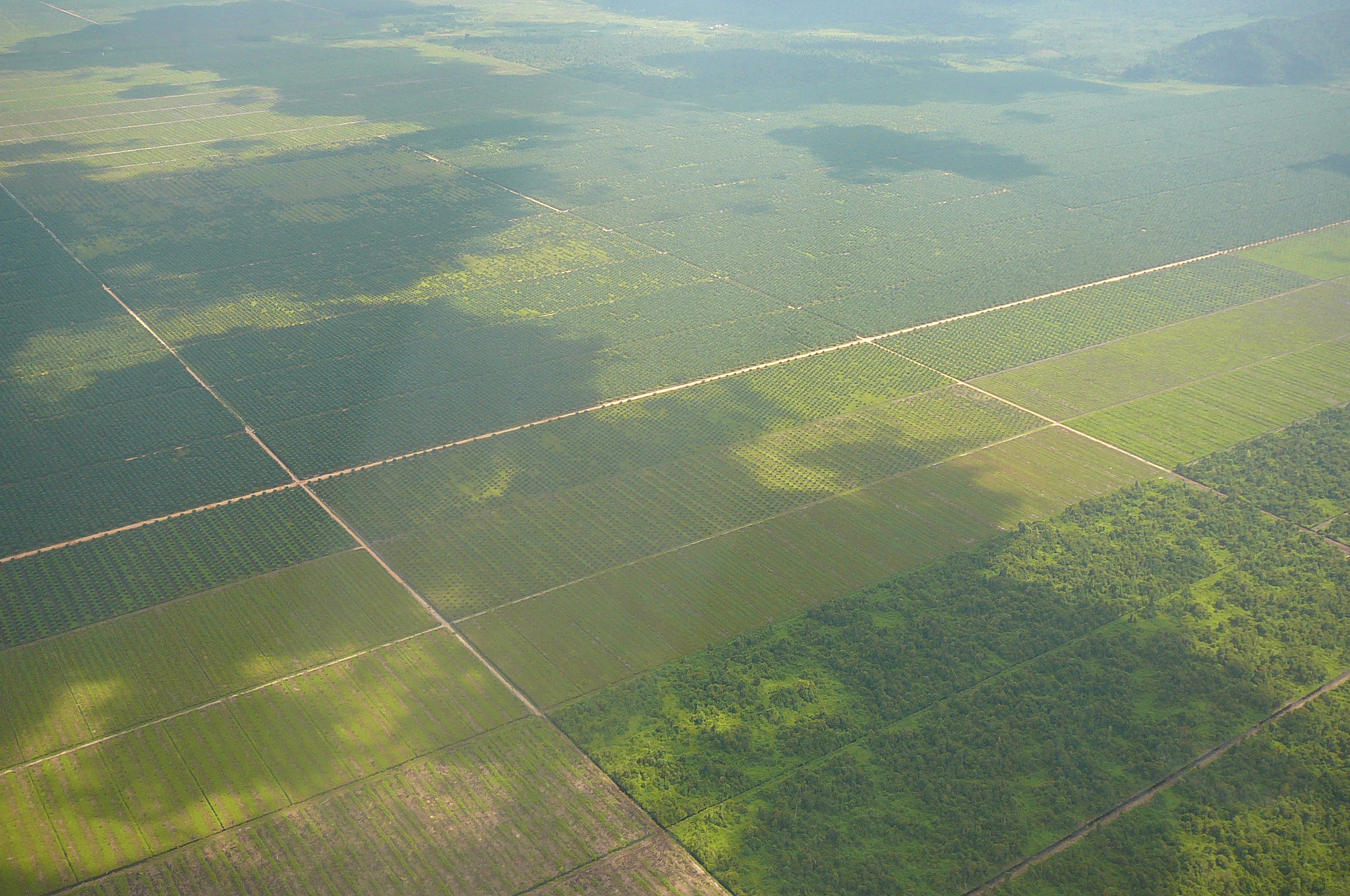
"RAN’s Rainforest Agribusiness Team Investigates Palm Oil Controversy in Indonesia" by Rainforest Action Network is licensed under CC BY-NC 2.0
The increasing demand of meat products puts pressure on agricultural lands as more feed crops results in expansion of land use. Most of the human appropriation of freshwater resources is for agriculture (>80%) and not for drinking (<10%). In order to meet the increasing demands, value chain agriculture framework is promoted as a way to meet demands for feed crops. This further puts pressure on intensifying agri-inputs like seeds, fertilizers, agrochemicals and mechanization to cover the cost and demand, while deteriorating groundwater quality and polluting surface water as pesticides and livestock industry manure runoff results in unhealthy levels of bacteria, phosphorus pollution and frequent algae blooms.
On the other hand, the pollution of water creates dead zones limiting the production of fish stocks for the river communities. More than half a billion people depend on fisheries for their livelihoods of which about 90% fisher people work in the small-scale fishing sector and catch half of the world's total catches by volume. However, Rights-Based Fishing have led to the privatization of the oceans along with a shift from state ownership toward private ownership of fishing rights. The fishing industry implements systems where the 10% minority fisher folks are instructed to catch one particular species. The shift dramatically removes stewardship which was built on the multi-species character of small-scale fisheries. The marginalised fishers whose livelihoods depend on marine resources eventually lose their livelihoods due to the privatization efforts. It is critical to recognize small-scale fisher communities in order to transition towards an ecologically and socially just food regime.
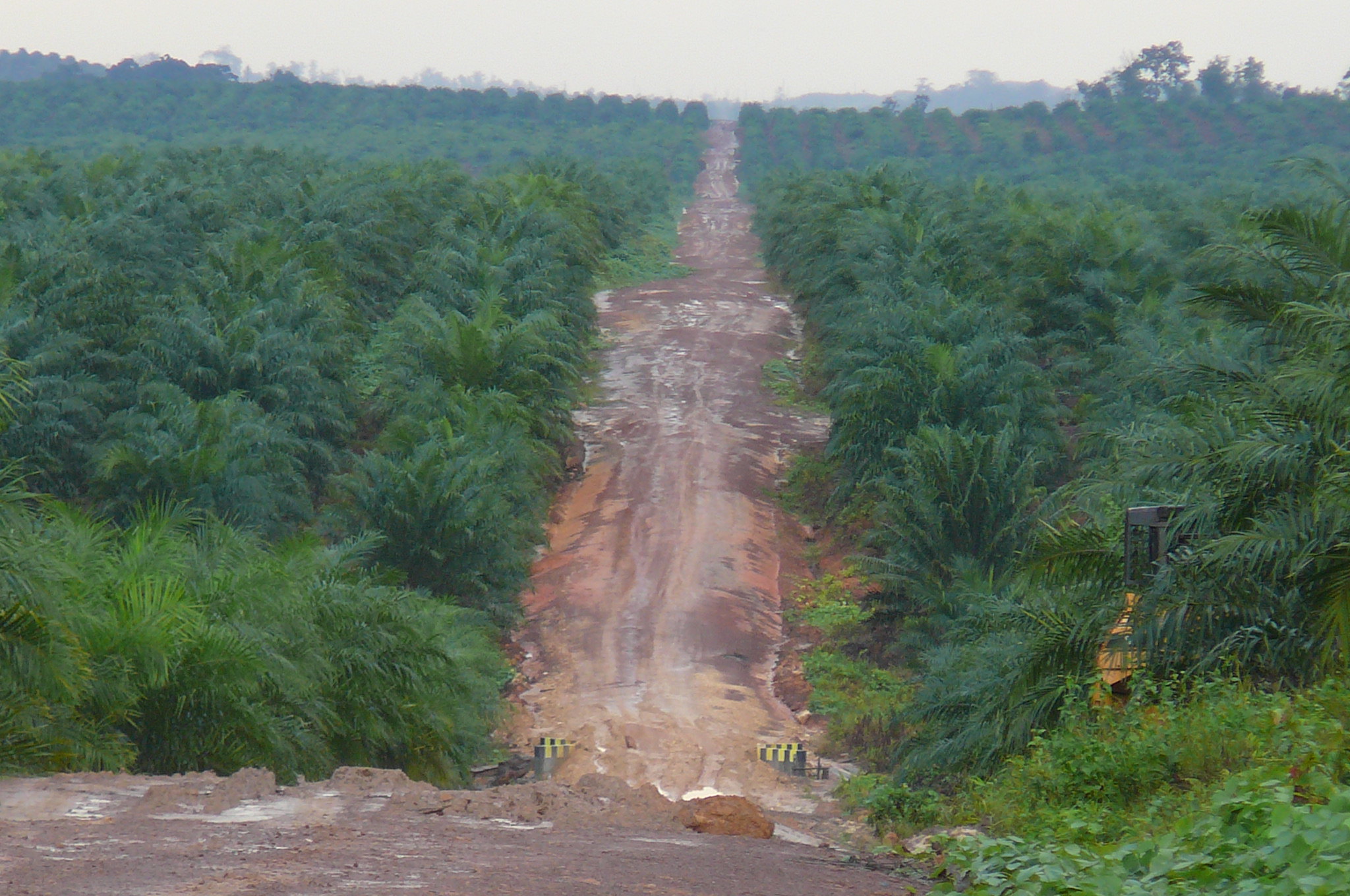
"RAN’s Rainforest Agribusiness Team Investigates Palm Oil Controversy in Indonesia" by Rainforest Action Network is licensed under CC BY-NC 2.0
Therefore, in order to move away from exploitation of land, water and labor, it is critical to recognize and promote food soverignity as a way forward. Food Sovereignty is a solution to address the global water crisis because of the amount of water used in the global food supply chain.
This solution intersects with solutions for food and can be found here.
Organizations working against Industrial Agriculture or Agribusiness:
ETC Group
ETC Group works to address the socioeconomic and ecological issues surrounding new technologies that could have an impact on the world’s poorest and most vulnerable people.- The Industrial Food Chain Vs. The Peasant Food Chain
- Farmers' Rights & Food Sovereignty
- Video: Who Will Feed Us? The Peasant Food Web vs the Industrial Food Chain
- The Next Agribusiness Takeover: Multilateral Food Agencies
- Three Big Battles for Global Food Policy Looming
Global Alliance for the Rights of Nature (GRAIN)
GRAIN is a small international organization which supports the struggle of peasants and social movements to strengthen the control of communities over food systems based on biodiversity. Their report Impossible Emissions shows that together, the top five meat and dairy companies (JBS, Tyson, Cargill, Dairy Farmers of America and Fonterra) are already responsible for more greenhouse gas emissions than ExxonMobil, Shell or BP.- [Report] Impossible Emissions: How Big Meat And Dairy Companies Are Warming The World
- [Article] Animal Agriculture and Dairy Industries
- [Video] Animal Agriculture; Factory Farming & Climate change
- [Quarterly Magazine] Seedling
- [Report] 2019 Activity Report
Transnational Institute’s Agrarian & Environmental Justice programme
TNI’s Agrarian & Environmental Justice programme brings together research and analysis on the collective struggles of rural working people to democratise access, ownership, and control of land, water and other natural resources. It works closely in alliance with local, national and global alliances of small-scale farmers, fisherfolk and marginalised rural working people.- [Resource page] Transformative practices
- [Report] Your Land, My Land, Our Land: Grassroots strategies to preserve farmland and access to land for peasant farming and agroecology
- [Report] Growing power: Mega-Mergers and the fight for our food system
La Via Campesina
La Via Campesina is an international movement bringing together millions of peasants, small and medium size farmers, landless people, rural women and youth, indigenous people, migrants and agricultural workers from around the world. Built on a strong sense of unity, solidarity between these groups, it defends peasant agriculture for food sovereignty as a way to promote social justice and dignity and strongly opposes corporate driven agriculture that destroys social relations and nature.Friends of the Earth International (FOEI)
FOEI campaign’s on today’s most urgent environmental and social issues. We challenge the current model of economic and corporate globalization, and promote solutions that will help to create environmentally sustainable and socially just societies.Additional Resources on Food’s Impact on Water
- Irrigation for farming depleting groundwater resources
- Meat’s large water footprint
- Water pollution from U.S. meat processing plants
- Poor water quality on Virginia’s Eastern Shore from Poultry and Manure Production
- Water Pollution from Livestock in the Shenandoah Valley
"Fishermen in the river, Solimoet, in the Amazon river basin" by World Bank Photo Collection is licensed under CC BY-NC-ND 2.0
Organizations leading the fight against Fishing Industries
World Forum of Fisher Peoples’ (WFFP)
The World Forum of Fisher Peoples (WFFP) is a mass-based social movement of small-scale fisher people from across the world, founded on 21 November 1997 in New Delhi, India, by a number of mass-based organisations from the Global South. WFFP has 29 member organisations from 23 countries and represents over 10 million fisher people from all over the world.World Forum of Fish Harvesters & Fish Workers (WFF)
WFF is an international organization that brings together small scale fisher organization for the establishment and upholding of fundamental human rights,social justice and culture of artisanal /small scale fish harvesters and fish workers,affirming the sea as source of all life and committing themselves to sustain fisheries and aquatic resources for the present and future generations to protect their livelihoods.- No To Blue Carbon, Yes To Food Sovereignty & Climate Justice
- Workshop: Implementation of the Voluntary Guidelines for Securing Sustainable Small Scale Fisheries (SSF Guidelines)
- A Call for Governments to Stop Supporting the Global Partnership for Oceans (GPO) and Rights-Based Fishing (RBF) Reforms
Additional Resources:
Books, Articles, and Reports:
- Food Justice: An Environmental Justice Critique of the Global Food System
- (IPES) Breaking away from industrial food and farming systems: Seven case studies of agroecological transition
- Environmental Justice and Sustainable Agriculture
- Pesticides: Health Effects in Drinking Water
- Pesticides as Water Pollutants
- The Global Ocean Grab: A Primer
- Ocean grabbing: a new wave of enclosures
Maps and Catalogs:
- EJAtlas - Mapping environmental conflicts (Pick water management under category to review water management conflicts)
Documentaries and Videos:
Obstacle 2:
Extractive Industries
The central mechanisms of extractive industries capitalize on the environment through commodification or more commonly through the establishment of ecosystem services. Some of the most extensively operated extractive industries that impact people and our environment throughout the developmental stages are oil & gas, hydroelectric power dams, dams and reservoirs (agricultural purposes and consumption), beverage companies, mining, retail industries (fashion, manufacturing goods, plastics), and industrial agriculture projects (groundwater extraction). The process of minerals extraction creates industrial wastelands from vast open pit mines and mountaintop removal, voracious use and poisoning of water systems, deforestation, contamination of precious topsoil, air pollution, acid leaching, and cancer clusters. The construction of large scale projects like dams and reservoirs divert a major part of river flows, threatening the livelihood and survival of rural communities and indigenous peoples who depend on the rivers, leading to loss of biodiversity affecting fishing communities and again leading to food insecurity.
 Roy, Arundhati, and Aradhana Seth. Dam/age: A Film with Arundhati Roy. Brooklyn, NY: First Run/Icarus Films, 2004. Internet resource.
Roy, Arundhati, and Aradhana Seth. Dam/age: A Film with Arundhati Roy. Brooklyn, NY: First Run/Icarus Films, 2004. Internet resource.In the last 50 years, the transport of goods through globalization has also given rise to the concept of ‘virtual water’. Virtual water is defined as the hidden flow of water if food or other commodities are traded from one place to another. Large private water companies, agribusinesses and extractive industries are the main profitters and traders of virtual water (the amount of water embedded within the production, processing and trade of commodities). The extraction of water for the production and processing of products for global consumption has altered the dynamics of how we interact with our environment.
The push to create stronger regulations from the impacts of Climate change has led to the dramatic shift in domestic environmental laws and the introduction of state agencies to oversee the facilitation and implementation of the federal and local laws. The efforts to mobilize should not be limited to enforcements because fundamentally the state is designed to act as a platform to legally extract through state mechanisms like permits, enforcements and licenses to operate. The state’s central function is to legally allow extraction of resources for the sole purpose of profit margins and economic developments. In the late 1960s, nations in the global North saw a rise of the modern environmental movements which extended to influence the global south and follow a similar pattern introducing regulations, enforcements and impact assessment reports. However, it is important to be critical of the platform which is premised to operate within the system that is designed to exploit the environment for the sole purpose of development through management and ecosystem services.
Organizations leading fight against Extractive Industries
The GAIA Foundation
The GAIA Foundation is an organisation with over 30 years experience accompanying partners, communities and movements in Africa, South America, Asia and Europe. Together we work to revive bio-cultural diversity, to regenerate healthy ecosystems and to strengthen community self-governance for climate change resilience. Post-extractivism is founded in philosophies of Buen Vivir (Good Living) and intersects with alternative development and economic theories/practices from de-growth to the commons.- [Report] Opening Pandora’s Box – A New Wave of Land Grabbing for the Extractive Industries and The Devastating Impact on Earth
- [Post-extractivism Library] Post-extractivism: Emblematic Cases From Finland To Colombia
- [Guidebook] Protecting Your Community From Mining And Other Extractive Industries
- [Web resources] Learning: Exploring Post-extractivism
- [Documentary] In Defence of Life
- [Report] Beyond Development: Alternative Visions from Latin America
Yes To Life, No To Mining (YLNM)
YLNM was founded in 2014 by communities, organisations and networks from Africa, Europe, North and South America. The network exists to support those communities who have decided to say NO to mining, in recognition of their right to say no, their right to Free Prior and Informed Consent and the unique challenges they face in defending land, water and life.The organizations are also listed under Obstacles section in Energy + Minerals Section [Link here]
Readings & Resources to learn more about issues related to Extraction
- Fossil Fuel (Coal, Oil, Gas)
- [Interactive Mapping tool] Global Coal Power
- [Blogpost] Oil Spill in Sundarban, Bangladesh
- [Video] True Cost of Chevron Network and the Protect the Protest Coalition
- [Report] US groundwater polluted by Coal’s Poisonous Legacy
- [Report] Groundwater Contamination from Texas Coal Ash Dumps
- [Website] Dakota Access Pipeline, North Dakota
- [Article] Timeline of Dakota Access Pipeline
- [Paper] Beyond Development: Extractivism and neoextractivism
- Beverage Companies
- (Article/Video) Land, Labor and Water Extraction
- (Article) Water grabbing by Nestle in Ontario, Canada
- (Article) Water Extraction by Nestle in Florida Springs
- (Article) Water Extraction by Coca-Cola plant in India
- (Article) Nestlé Just Took Its 2 Billionth Litre
- [Fact Sheet] Protect Water: Boycott Nestlé
- (Article) China’s Bottled Water Industry
- (Article) Bottled Water from Tibetan Plateau
- Mining
- Undermining The Water Cycle – Extractive Industries & A Planetary Water Crisis
- [Article] Sand mining prompting floods in Kerala, India
- [Article] Riverbed mining in Yamuna River,India
- [Article] Rivers, People, Revenue Robbed in Uttarakhand, India
- [Paper] Mining for Mother Earth. Governmentalities, sacred waters and nature's rights in Ecuador
- [Academic Project] Extractive industries, mining and water rights
- [Publications] Miningwatch - Canada
- Hydro Dams
- [Video] Problems with Big dams
- [Overview] The case against large Dams
- [Video] Is Hydropower benign, reliable and financially viable?
- [Blog post] On Extraction and Dams in Tibet
- [Video] Belo Monte Dam on the Lower Xingu
- [Video] Dam Is Destroying Rainforest And Displacing Thousands In Brazil
- [Article] Water supply solution? Dams in Pakistan
- [Blogpost] Displacement from Tehri dam, India
- [Article] The Cost of Living by Arundhati Roy on damming Narmada River
- [Newsletter] Impact of Dams in Mekong River
- [Report] Dams, Rivers and People; Coping with Floods in a Changing Climate
- Retail Industries [Manufacturing industries]
- Groundwater Extraction
- [Analysis Report] Critical issues on Groundwater in India
Obstacle 3:
Financial Institutions, Transnational corporations and Governance
Understanding and responding to water injustice will necessarily involve attention to key linkages related to food, energy, and health and other sectors. Water access and the quality of water are highly unequal as it varies according to a range of social and spatial gradients.
Water grabbing involves the capturing of the decision-making power around water, including the power to decide how and for what purposes water resources are used now and in the future. The injustice deprives local communities whose livelihoods often depend on these resources and ecosystems.The dominating forms of water expertocracy facilitating privatization and water grabbing have varying levels of detrimental impacts on the environment and local communities. Subsequently, it is critical to recognize the comprehensive mechanisms that underpin large scale projects across the globe. They are initially supported by transnational corporations and/or financial institutions, and facilitated by treaties, international policies, backed by credit agencies, and formulated and/or operated government bodies. At the local level, the projects are consulted with water experts, reviewed and approved by local state agencies whose primary goal is to secure and strengthen economic development, while ignoring the detrimental effects of the projects on the local communities.
The environmental crises of the Anthropocene are deeply connected to economic policies that have enabled and continues to perpetuate exploitation and injustices. Some of the major global institutions and sectors are listed below:
- Public-Private Partnerships (PPP)
- State bureaucracies and Water Expert Communities
- Water Privatization Companies
- Transatlantic Trade and Investment Partnership (TTIP)
- World Trade Organization (WTO)
- World Bank
- International Finance Group (IFC)
- Asian Development Bank (ADB)
- International Monetary Fund (IMF)
- Trans-Pacific Partnership (TPP)
Organizations working to create awareness about Trade agreements:
Bilaterals.org
A shared concern about the growth of bilateral trade and investment deals outside of the World Trade Organisation (WTO) and a feeling that these less visible agreements were "under the radar" of many social justice activists led to the formation of bilaterals.org website. The site’s goal is really to support social movements resisting the imposition of these deals, in a way that builds bridges between isolated efforts and shows the bigger, often global, dynamics at play.- [Website Resource] Updates on Corporate Interests
- [Website Resource] Updates on Investments
- [Article] What’s wrong with free trade agreements
- [Platform] Stop Investor-state Dispute Settlement (ISDS)
La Via Campesina
La Via Campesina is an autonomous, pluralist, multicultural movement, political in its demand for social justice while being independent from any political party, economic or other type of affiliation. The movement fights against Capitalism and Free trade, Transnational Companies and Agribusiness, and Patriarchy. - Capitalism and Free Trade
- [Article] It’s time to transform. It’s time to Globalize Solidarity, Localize Agriculture!
- Transnational Companies and Agribusiness
- [Key Documents] Free Trade Agreements
- [Video] India-US Free Trade Agreement and its impact on small-scale food producers in India
- [Video] 5 Reasons Why WTO Is Bad For Agriculture | Explainer
Transnational Institute(TNI)
TNI’s Trade & Investment project opposes the European Union’s corporate-driven trade and investment policies by providing well-researched analysis on its social and ecological impacts, supporting the development of popular campaigns and proposing alternative policies that prioritise people’s rights over corporate profits.- [Policy Brief] Silent expansion: Will the world’s most dangerous investment treaty take the global south hostage?
- [Report] Impacts of investment arbitration against African states
- [Publication] The Belt and Road Initiative (BRI): An Asia Europe People’s Forum (AEPF) Framing Paper
- [Report] Regional Comprehensive Economic Partnership (RCEP): Trade talks fail the transparency and public participation test
-
[Report] TiSA and the Threat to Public Banks: Why we must stop this global financial Inferno
- [Report] International regulatory cooperation and the public good
Overview of Trade Agreements & Info on Global Financial Structures
- Economic model of development (capitalism and colonialism)
- Ecological Debt (North-South Divide)
- World Bank’s International Centre for Settlement for Investment Disputes (ICSID): As a form of Investor protection mechanism, Investor-state dispute settlement (ISDS) is included in bilateral investment treaties and used by water multinationals to claim exorbitant amounts of public money in compensation for canceled service management contracts. It gives foreign investors the ability to directly sue countries in private international tribunals for compensation that allegedly undermine their corporate rights.
- Trade in Services Agreement (TiSA) makes the liberalization and privatization of water irreversible. TiSA participants account for about 70% of world trade in services and include the European Union, in addition to the United States and Australia.
- Memorandum of Understanding (MoU) is an agreement between two or more parties outlined in a formal document.
- Environmental Impact Assessments (EIA) are reports produced by stakeholders of a project that sets criterias to allow or deny the physical infrastructure systems built around the world. Some of the main components include: legal basis, coverage, consideration of alternatives, screening and scoping, EIA report preparation, EIA report review, decision making, impact monitoring, mitigation, consultation and participation, system monitoring, costs and benefits, and strategic environmental assessment (SEA)
- [Reflections] Dams in Teesta River in Sikkim, India
- [Overview] Shortcomings of review structure and process (Teesta River, India)
- Ministry of Environmental Forestry [MoEF] (Forest Clearances, India)
- North American Free Trade Agreement (NAFTA): NAFTA is one of the biggest threats as it protects the right of foreign investors. Water is defined as an investment as it becomes a tradable good under NAFTA allowing vast and unsustainable amounts of water to extract oil from the tar sands, to bottle ancient glacier water and groundwater, and to dump their waste into lakes.
Additional Reports, Publications & Articles:
- [Paper] The Social Construction of Scarcity, Water in Western India
- [Article] Perils of the US-India free trade agreement for Indian farmers
- [Report] The Clean Development Mechanism: Local Impacts of a Global System
- [Blogpost] Anti-politics of climate change [Bangladesh]
- [Slides] Water governance in India
- [Paper] The UN World Water Development Report 2016, Water and Jobs : A Critical Review: Assessment: WWDR 2016, Water and Jobs
- (Article) Indian Tea Estates [Land and water grab]
- (Report) Indian Tea Plantations
- [Leaflet] The Unfair Cooperation Agreement on Water Privatization (Jakarta)
False Solutions
False Solution 1:
Sustainable Development?
The concept of ‘Sustainable development’ deployed by transnational actors, mainstream environmental politics, United Nations and other non-governmental organizations following the Environmental, Social and Governance (ESG) paradigm focuses on planetary boundaries (Gonzalez 2015). It is important to see beyond the agenda and critically examine the frameworks that perpetuate disparities through the dominance of hegemonic knowledge power and the neoclassical economic models.
Organizations like the World Business Council for Sustainable Development (WBCSD) create false narratives. WBCSD is a global, CEO-led organization of over 200 leading businesses working together to accelerate the transition to a sustainable world with a primary goal to make the stakeholders member companies more successful. Another global false solution is the Global Mining Initiative (GMI) is an international initiative by the International Council of Mining and Metals (ICCM) that claims to operate responsibly and contribute to sustainable development. They promote their efforts to be sustainable through multiple reports highlighting new opportunities for governments and the mining industry to work together and engage with communities and other stakeholders to improve the sector’s performance. However, the fundamental mechanisms of extracting minerals destroy the environment, pollute and jeopardize living conditions of local communities.
 Water pollution image for free download from Pixabay License.
Water pollution image for free download from Pixabay License.
In addition, there are other upcoming trends driven by fashion and clothing industry with initiatives to decrease the impact on the environment, and specifically water sector as production of materials depletes water, pollutes it in the process of dyeing and manufacturing. The framework used by these initiatives are formulated by the Sustainable Development Goals (SDGs).
Organization working against the false narrative of Sustainable Development:
Alternative World Water Forum (AWWF)
The objective of the Alternative World Water Forum (AWWF) - in French, the Forum Alternatif Mondial de l'Eau (FAME) - is to create a concrete alternative to the sixth World Water Forum (WWF) which is organized by the World Water Council. This Council is a mouthpiece for transnational companies and the World Bank and they falsely claim to head the global governance of water.- [Article] Blue Planet Project Opposes The World Water Forum
- Reports & Publications
- Summary Of The Workshop “Internationalisation Of Water Battles”
Resources and Readings:
- [Paper] The sustainable development goals, anthropocentrism and neoliberalism
- Appropriation of ‘Human Right to Water’ by Institutions, Transnational corporations
- [Report] Water Rush: Why B.C.’s Water Sustainability Act Fails To Protect Water
- [Paper] Critical sustainability: incorporating critical theories into contested sustainabilities
- [Paper] Unsustainable development
- [Book] Unsustainable Oil: Facts, Counterfacts and Fictions
- [Blog Post/Video] Is Green Infrastructure Fair?
False Solution 2:
Greenwashing
Greenwashing mechanisms are projecting false solutions like certification programs, water footprint offset schemes, sustainable operations, leadership mandates in corporations, public-private partnerships, advancing corporate social responsibility (CSR), and clean development mechanism (CDM) which relies on carbon credits to fund/subsidise hydropower projects as ‘ecologically friendly’ or ‘clean’ energy projects.
A report on ‘The Global Land Rush and Climate Change’ hypothesizes that climate change affects land acquisition in two ways. First, the regulations imposed by the government in response to recent ‘green’ energy and through ‘land intensive’ climate mitigation policies and second, the impacts of climate change on agricultural production have raised concerns over food and energy security leading to heightened demand for land. It is a problematic approach to resolve the climate crisis as it is clear that adjustments to our current capitalist economic system, by introducing greater efficiency and substituting ‘green’ energy sources for fossil fuels, will not be enough to solve the emerging crises.
The global south was converted into a ‘carbon dump’ through the establishment of the Clean Development Mechanism (CDM) which, under the 1997 Kyoto protocol allowed nations to buy carbon from developing countries, leading to an adaptation fund to be financed through taxing CDM transactions forming what critics called ‘carbon imperialism’. Similarly, European Union’s policies initiated the transformation of land into a global commodity. One of the Clean Development Mechanism programs like the Renewable Energy Directive (RED) is a great example of green grabbing in Europe. RED played a critical role for agrofuels triggering the oil palm boom in Southeast Asia and its Everything But Arms (EBA) agreement helped fuel global land grabbing in countries like Cambodia.
Organizations working against Greenwashing:
La Via Campesina
La Via Campesina is an international movement bringing together millions of peasants, small and medium size farmers, landless people, rural women and youth, indigenous people, migrants and agricultural workers from around the world. Built on a strong sense of unity, solidarity between these groups, it defends peasant agriculture for food sovereignty as a way to promote social justice and dignity and strongly opposes corporate driven agriculture that destroys social relations and nature.- [Publication] Seed Stories | Fighting Against the Privatisation of Life
- [Report] La Via Campesina in Action for Climate Justice | Radical Realism for Climate Justice
- [Publication] European Coordination Via Campesina (ECVC) launches a peasant agroecology manual on how to phase out the use of pesticides
- [Newsletter] Land Grabs and Land Justice
GRAIN
GRAIN is a small international non-profit organisation that works to support small farmers and social movements in their struggles for community-controlled and biodiversity-based food systems- [Article] Step aside agribusiness, it's time for real solutions to the climate crisis
- Corporations and Trade Agreements
- [Article] Emissions impossible: How big meat and dairy are heating up the planet
INTERNATIONAL RIVERS
International Rivers protects rivers and defends the rights of communities that depend on them. In their strategic plans, they acknowledge that we are in the midst of a major energy transformation – one that will take us from environmentally destructive, centralized models of energy generation to decentralized solutions that empower communities while protecting the environment.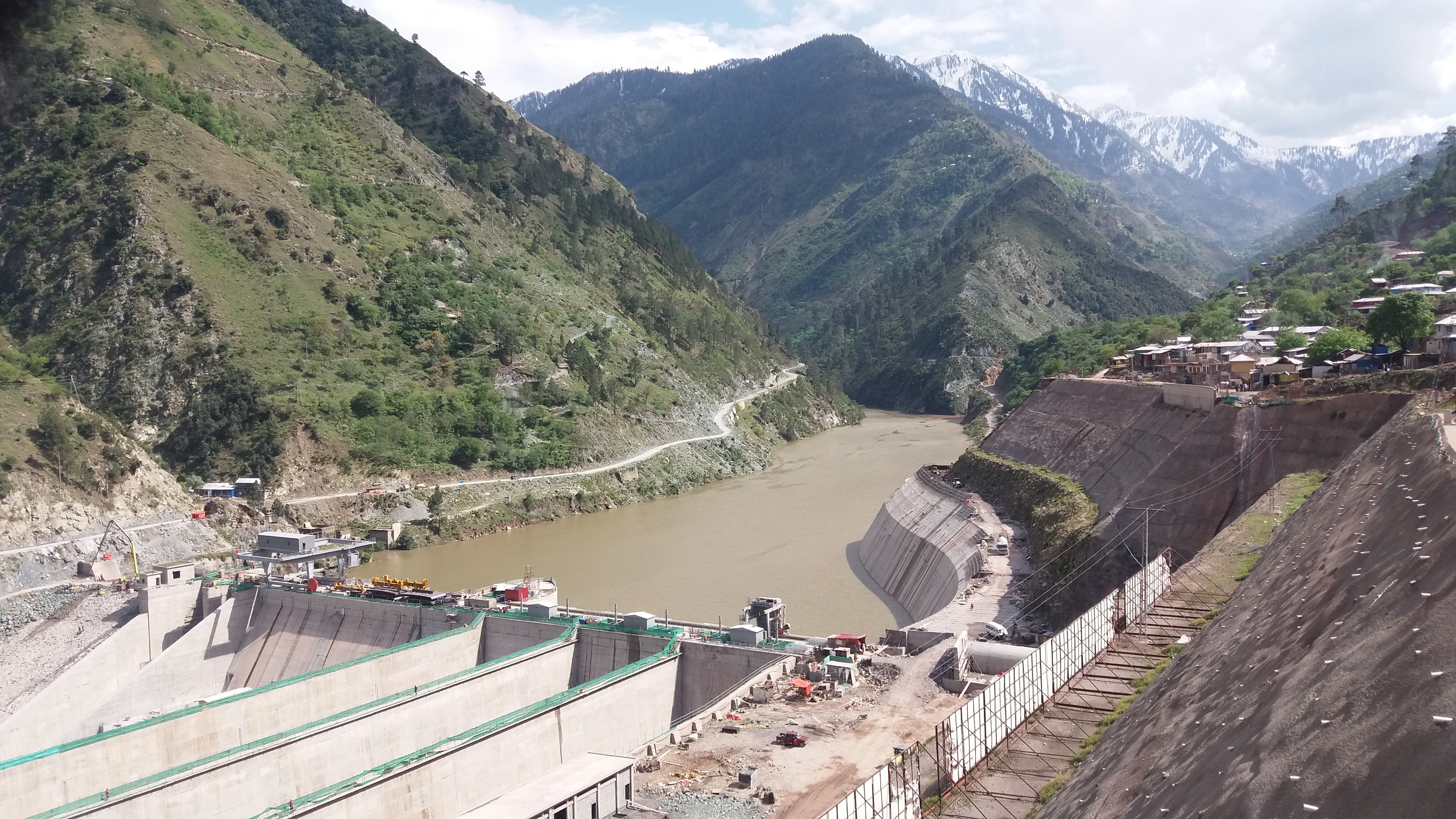
“ Main dam body - Neelum Jhelum Hydropower Plant” by Asadwarraich is licensed under CC BY-SA 4.0
Readings and Resources on Greenwashing Hydropower dams
- Greenwashing: Hydropower dams
- Fact sheet from International Rivers
- Fight Back Against Greenwashing
- [Article] Hydropower’s Dangerous Bid To Re-cast Itself As ‘Green’
- Statement: Climate Bonds Initiative must abandon its misguided attempt to greenwash hydropower
- Green Washing dirty hydro! CDM
- [Report] Carbon Offset Schemes
More Resources on False solutions relating to clean energy can be found on the Energy and Minerals page [Link here]
False Solution 2:
Green Grabbing & Ecosystem services
Green Grabbing is the appropriation of land and resources for environmental ends. It is rooted in the colonial and neo-colonial resource alienation in the name of the environment. Payment for Ecosystem Services (PES) is a globally promoted policy to foster nature conservation. It is also increasingly propagated as an innovative and self-sustaining governance instrument to support poverty alleviation and to guarantee water, food, and energy securities.
The FAO, the World Bank, Conservation International and others have launched a wide reaching program aiming at the reform of fisheries policy across the world which will have devastating impacts for small-scale fisher folk in the targeted countries and regions. Furthermore, the actors behind the Coastal Fisheries Initiative (CFI) want their reforms to inform global fisheries policy. Likewise, the World Economic Forum, agri-food conglomerates, IT companies and philanthropists (led by the Gates Foundation) have teamed up to spearhead three separate initiatives which could converge and utterly transform the multilateral agricultural system. At stake is influence over four institutions with a combined annual budget of $11 billion and 5100 scientific/professional staff.
Another emerging concern is ocean grabbing.The World Bank’s GPO is one-such legal framework for ‘grabbing’. Bringing together a set of powerful actors – from USAID to the Walton Family Foundation (the family behind Walmart) to big environmental NGOs such as the World Wildlife Fund and the Environmental Defense Fund, GPO’s goal is to spread private property rights over the ocean’s fish resources.
Organization working to create awareness against Green grabbing and Ecosystem services
Transnational Institute (TNI):
TNI’s Corporate Power project develops analysis and proposals on how to end corporate impunity and dismantle corporate power. It is a lead facilitator of the international movement Stop Corporate Impunity and supports international efforts to establish binding international legal obligations for TNCs.
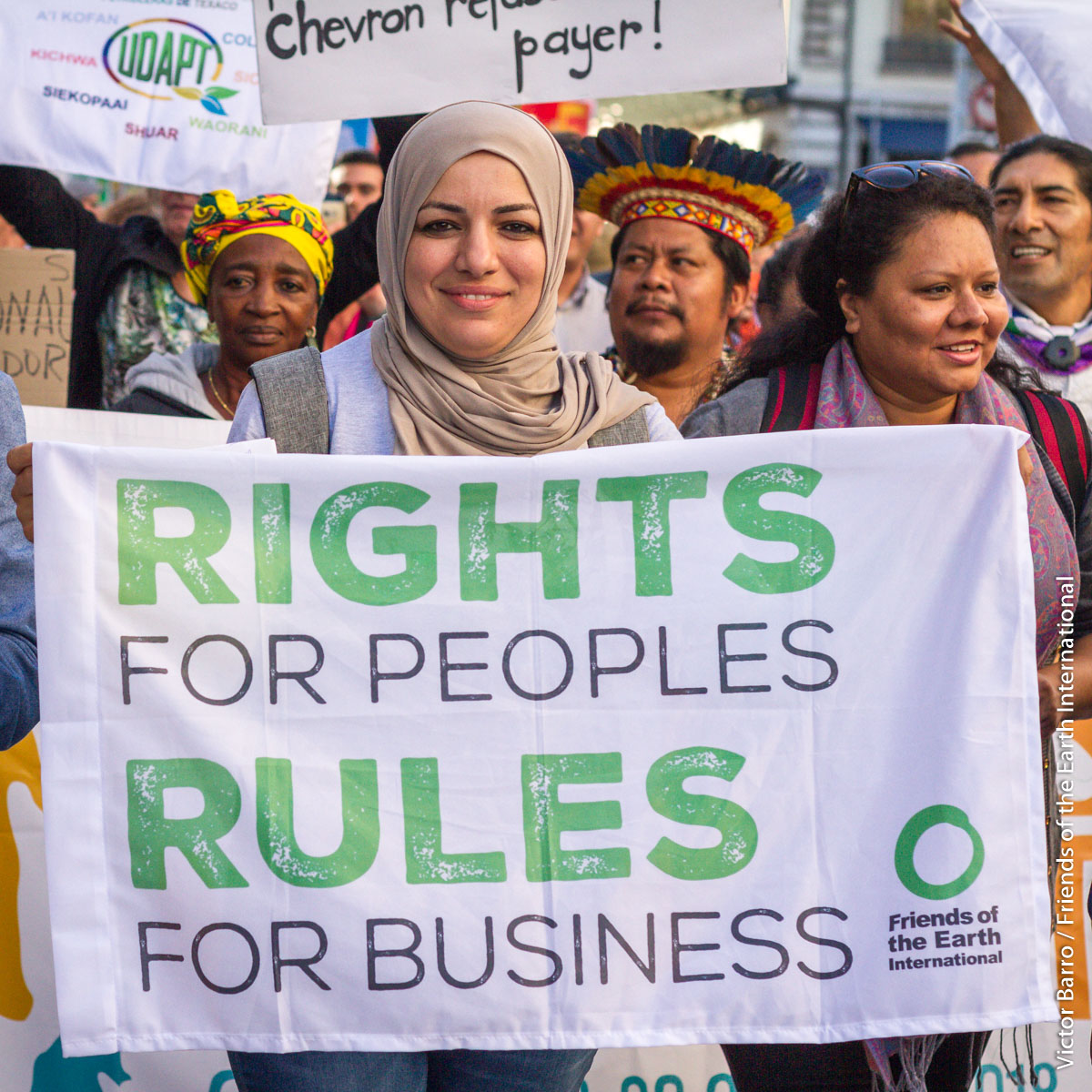
Image from Friends of Earth by Victor Barro is licensed under CC BY 4.0
More resources on Green Grabbing & Ecosystem services
- [Paper] Payment for Ecosystem Services (PES) Schemes
- [Publication] Climate-Smart Agriculture:Drip Irrigation Issues
- [Article] Coastal Fisheries Initiative (CFI)
- [Report] Multilateral Food Agencies
- [Article] World Bank’s Global Partnership for Oceans (GPO)
- Ocean Grabbing Resources
Additional Reading & Resources on Water Issues:
- [Paper] The Global Water Grabbing Syndrome
- [Paper] The Global Politics of Water Grabbing
- [Paper] Introduction to the Special Issue: Water Grabbing? Focus on the (Re)appropriation of Finite Water Resources
- Water Grabbing in the Cauca Basin: The Capitalist Exploitation of Water and Dispossession of Afro-Descendant Communities
- [Factsheet] The New Nafta: How It Impacts Our Water
- [Report] A Thirst for Distant Lands: Foreign investment in agricultural land and water
- [Report] How corporations are planning to Take Control of Local Water Services
- [Paper] The international political economy of the global land rush: A critical appraisal of trends, scale, geography and drivers
- [Report] UnderMining Agriculture- How the Extractives Industries Threaten our Food Systems
- [Paper] Colonizing rural waters: the politics of hydro-territorial transformation in the Guadalhorce Valley, Málaga, Spain
- [Website] Farmland Grab
- [Article] How They Tricked Us: Living with the Gibe III Dam and Sugarcane Plantations in Southwest Ethiopia
- [Movie] Land Grabbing
- [Facebook page] Stop Land Grabbing
- [Article] A New Scramble for Africa: Land Grab & Dispossession of People
- [Article] The Multiple Challenges and Layers of Water Justice Struggles
- [Article] Water Justice: Key concepts, debates and research agendas
- [Article] NYC Watershed Land Acquisition Program
- [Article] Stopping land grabs by university funds: farmers and faculties unite
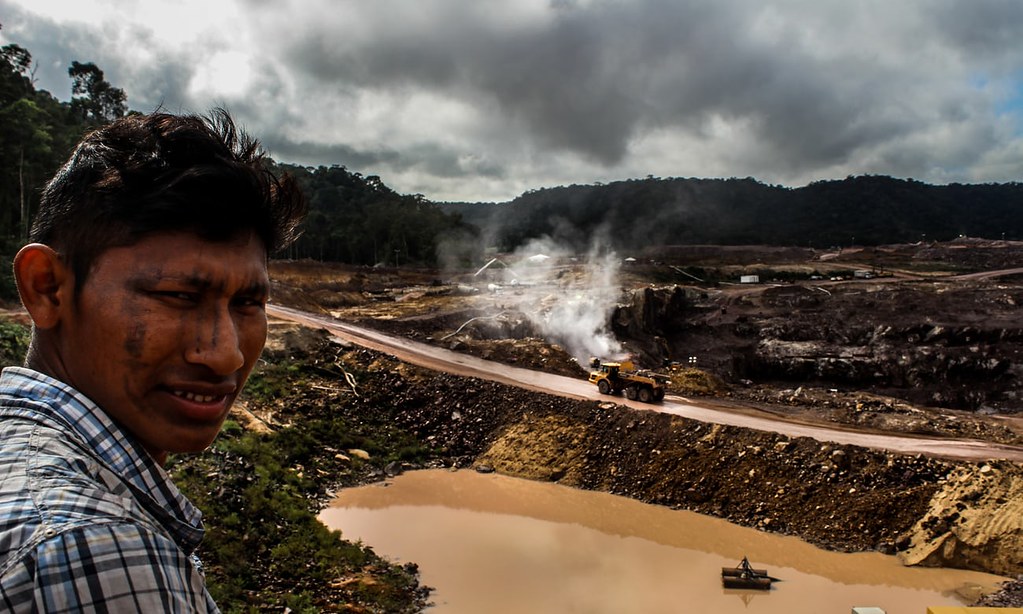
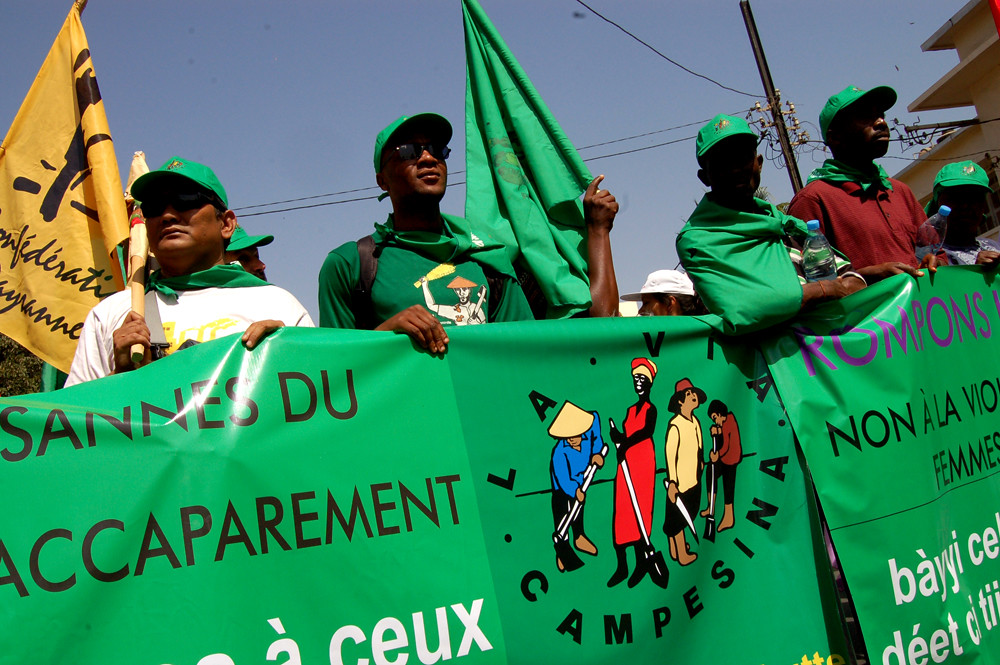
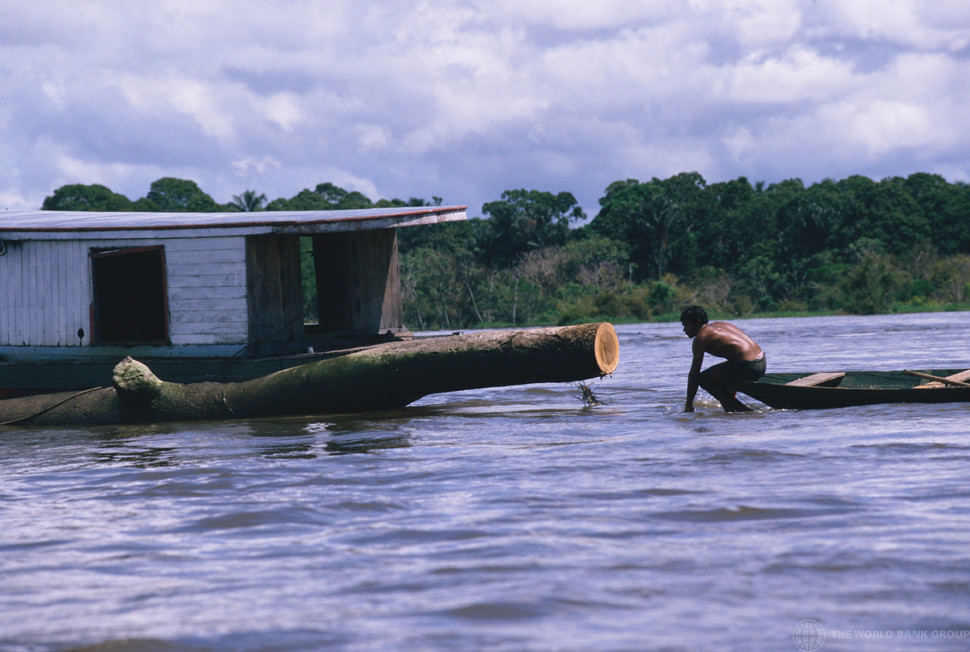
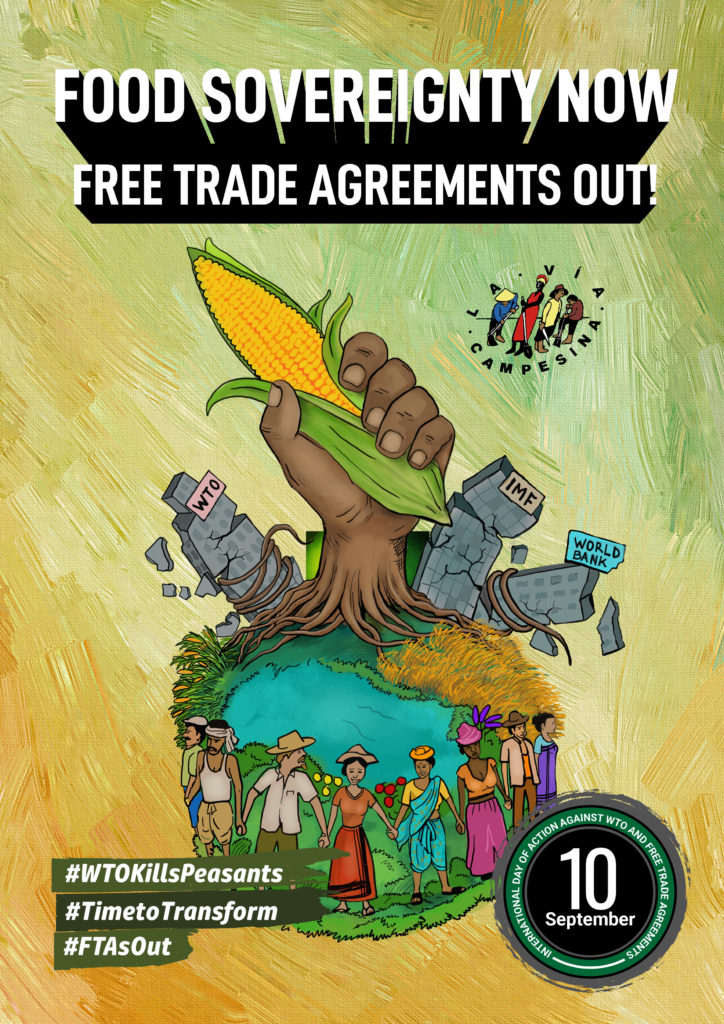 Poster Image from La Via Campesina’s
Poster Image from La Via Campesina’s